SUMMARY
This is AI generated summarization, which may have errors. For context, always refer to the full article.
![[OPINION] Climate on our minds on Earth Day 2021](https://www.rappler.com/tachyon/2021/04/Climate-change-inequality-April-23-2021.jpg)
Let’s be clear. There is no doubt that we are now on the cusp of a global climate emergency. According to United Nations Secretary-General António Guterres:
“2021 is a make or break year to confront the global climate emergency. The science is clear: to limit global temperature rise to 1.5 C, we must cut global emission by 45% by 2030 from 2010 levels.”
In short, we are running out of time. In essence, we only have until 2030 to transform the global economy to avoid the worst impacts of climate change by 2050.
Those worst impacts of the climate emergency are not going to be distributed equally. Poor countries will suffer first and suffer much more, even though they have contributed very little to the problem. Poor people in all countries will also be hit early and harder than the rich. Indeed, climate injustice is not only between countries, but also within countries.
Causes of climate change
There are four important anthropogenic greenhouses gasses that are accumulating in the Earth’s atmosphere, making the earth warmer, and disturbing the climate system. These are carbon dioxide, methane, nitrous oxide, and fluorinated gases.
These greenhouse gases correspond to critical economic sectors.
Energy and forestry activities produce carbon dioxide; agriculture and unsustainable waste management emit methane; and industry emits nitrous oxide and fluorinated gases, as well as carbon dioxide and methane.
Urbanization amplifies these emissions. Unless we fix our cities and make them more smart and resilient, we will not be able to overcome the climate emergency.
At the global level, industrialized countries have contributed the most emissions historically and at present, but big and middle income/emerging developing countries are increasing their contributions.
The least developed countries, which include many island states and African countries, contribute negligibly to the problem even as they are the most vulnerable to climate change.
The Philippines is a middle income country, but we are, as an archipelago, extremely vulnerable to climate change. We are a low emitter in comparison to high emitting countries like the United States and China but we emit more than most countries of the world. Island states and less developed countries emit much less than us.
As of writing, there is a summit of leaders going on in the White House hosted by President Biden. I hope that meeting will yield good outcomes as we are already facing climate impacts.
Impacts of climate change
The impacts of climate change are not distributed equally.
Disasters caused by extreme weather events impact the poor the most, as we saw in the last two months of 2020 when typhoons and storms Quinta, Rolly, Siony, Tonyo, and Ulysses hit Luzon in a span of six weeks.
It seemed like a lopsided air war where our people and communities were completely helpless, which was then followed by a ground invasion in the form of floods that were abetted by previous bad decisions on land use that disadvantaged the poor even more.
Sea level rise is also going to disproportionately impact the poor, as they do not have a lot of options in terms of relocating from the vulnerable areas where most of their current settlements are.
Likewise, it’s the poor in both cities and rural areas that will be bear the brunt of food and water scarcity as their options are limited.
Loss of biodiversity will also affect the rural poor, and especially indigenous peoples the most, as they rely on the richness of biological resources for food and livelihoods, not to mention their spiritual connection to the wildlife that surrounds them.
Finally, the climate emergency will give rise to serious public health impacts for everyone, but especially for the poor. Among others, we could see more zoonotic diseases that result in pandemics, and while rich and poor will be affected, it is the latter that will be affected more, as we are seeing today.
Mitigation, adaptation, and integrated solutions
There are mitigation actions we can take – abandon coal and oil completely as energy sources as early as possible and hasten to transition to a renewable energy based system, fix our solid waste management system, and change production and consumption patterns radically to prevent all forms of pollution.
In addition to mitigation, we must also implement adaptation strategies and interventions, including reducing risks to climate and other disasters, improving land use and infrastructure so that anticipated climate challenges can be addressed early on, and of course being diligent in protecting our watersheds and other sources of water so we can preserve all options.
But I would say that, together, in the energy transition which we must absolutely do as our contribution to global climate mitigation, the priorities for the Philippines are those solutions which integrate both mitigation and adaptation – which will meet these dual objectives and are also good for the economy and especially for the poor.
These are nature-based solutions such as expanding protected areas, and protecting as well as enhancing our forests, implementing climate friendly agriculture that emit less if not zero emissions while increasing production and uplifting livelihoods, and renewing our cities to make them more resilient and adaptive.
For the latter, every city is different, and it is imperative to identify the threats and risks now and to make the critical land use decisions and implement well-designed interventions as early as possible.
From personal to political action
There are things we can do to contribute to solutions and not add to the problem.
For individuals and families, the key phrase is “low carbon lifestyle” – what we eat, how we commute, our traveling habits, how we consume energy at work and home, what we throw away and keep, avoiding single use plastics, etc.
We can also do community actions like tree planting, urban gardening, and zero waste management.
But while we should all do what we can, we must not forget that a global problem requires a global solution, and individual actions by themselves will not bring the system change we need.
The climate emergency is a social justice and human rights problem with roots that are structural. To effectively respond to climate change and to avert worse, governments and big corporations must transform and lead the way towards a just transition that does not sacrifice again the needs and interests of the poor.
For the Philippines, this means that we should be serious in achieving the targets we have adopted in our newly submitted Nationally Determined Contribution to the Paris Agreement. Our emissions must peak by 2030 and we must reduce our emissions by 75% in 2030.
My view is that these targets are not ambitious enough, especially because of our reliance on foreign aid which might not be available. But for now, we can start with this and we must now develop and adopt the plans and programs that we will implement to achieve these targets. This includes also proposing concrete projects our international partners can support.
Big business must also radically change.
Concretely, April 22, 2021 marks both Earth Day and the start of the annual shareholders’ meeting season of our local banks, starting with BPI. We are reminded of the pressing need to address the climate emergency and the role our banks play in funding a major driver of climate change: coal.
Sadly, as well-documented by the Withdraw from Coal Coalition (WFC), some Philippine banks are contributing to our reliance on this deadly, costly, and destructive energy source by channeling billions of dollars into coal developers and projects around the country. According to WFC, BPI is the top financier of coal, closely followed by the Philippine National Bank (PNB), and BDO Unibank.
I join the rest of the world in calling on our banks to withdraw from coal. We challenge them to bring this up during their annual shareholders’ meetings, come up with clear public policies to turn their portfolio coal-free, and use their financial resources to support clean and affordable renewable energy.
Climate is on my mind on Earth Day 2021. It’s a huge challenge. But I am confident we can overcome this challenge if put all our minds together, imagine the possible, do the right thing ourselves, and succeed in getting the big players to do that, too. – Rappler.com
Tony La Viña is the Executive Director of Manila Observatory. He also teaches law and is former dean of the Ateneo School of Government.
Voices features opinions from readers of all backgrounds, persuasions, and ages; analyses from advocacy leaders and subject matter experts; and reflections and editorials from Rappler staff.
You may submit pieces for review to opinion@rappler.com.
Add a comment
How does this make you feel?
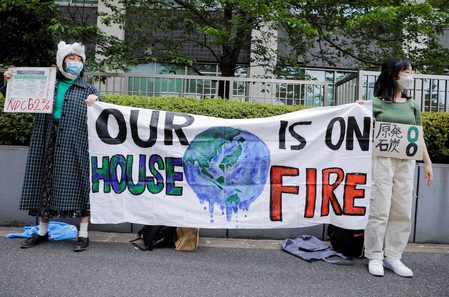
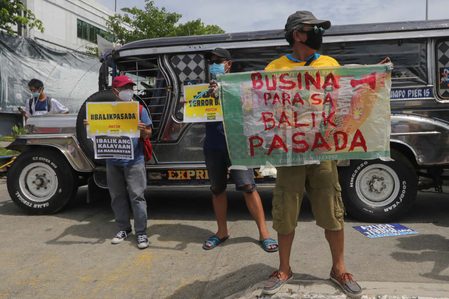
![[OPINION] An appeal to PH banks to stop investing in coal](https://www.rappler.com/tachyon/2021/04/tl-coal-investment-sq.jpg?fit=449%2C449)
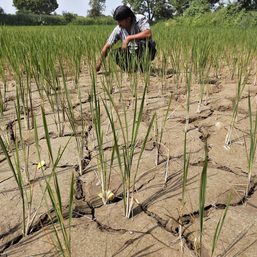
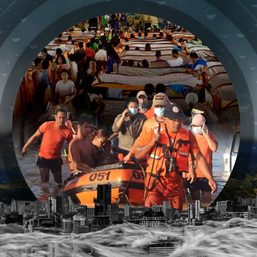
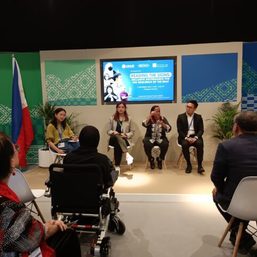
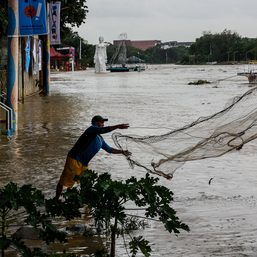
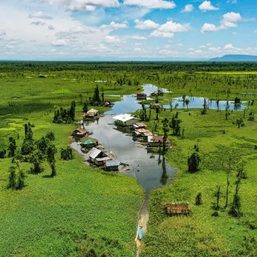
There are no comments yet. Add your comment to start the conversation.